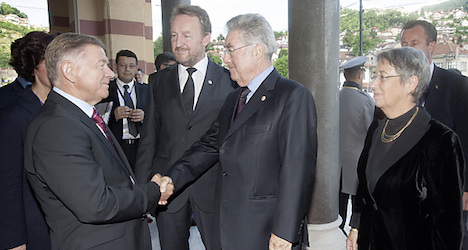The president will also be accompanied by Minister for Family, Sophie Karmasin, Minister for Economics, Reinhold Mitterlehner, and other political and economic representatives.
On Monday, Fischer will arrive in Estonia's capital, Tallinn, where he will meet with his Estonian counterpart Toomas Hendrik Ilves and Prime Minister Taavi Roivas. Topics of discussion are expected to include the current political situation in Ukraine and relations with Russia.
Around 25 percent of people in Estonia are Russian. Long before Russia's annexation of Crimea, Ilves and Roivas accused central and western European countries of ignoring eastern European countries' warnings about Russia.
Estonia and Latvia are both NATO members.
On Tuesday, the Austrian president will meet with Latvian President Andris Berzins in Riga, the capital of Latvia. Before he returns home on Wednesday, Fischer is due to speak with Prime Minister Laimdota Straujuma, and visit several museums.



 Please whitelist us to continue reading.
Please whitelist us to continue reading.
Member comments